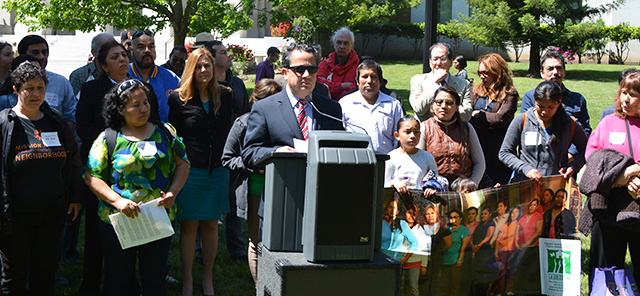 Back in 1983, Jerome Nash was a landlord in the coastal Southern California city of Santa Monica. Nash decided he no longer wanted to be in the rental business, so he challenged Santa Monica’s local measure the citizenry had passed to counter the more than 1,300 units of rental housing that had been razed in a 15-month period.
Back in 1983, Jerome Nash was a landlord in the coastal Southern California city of Santa Monica. Nash decided he no longer wanted to be in the rental business, so he challenged Santa Monica’s local measure the citizenry had passed to counter the more than 1,300 units of rental housing that had been razed in a 15-month period.
Santa Monica’s provisions of that measure mandated that landlords obtain a permit before they could remove units from rental housing stock. Permits could be issued only if all of the following conditions were met:
- The unit was not occupied by a person of low or moderate income
- The rent was unaffordable to those of low or moderate income
- Removal of the units would not adversely affect the city’s housing supply
- The landlord could not make a reasonable return on his or her investment
Nash’s desire to demolish his building had been denied by Santa Monica, with the city’s response upheld by the California Supreme Court, which ruled “the burdens imposed on Nash’s liberty interests were minimal and that the city’s permit requirement was reasonably related to the city’s goal of protecting its scarce rental housing supply.”
That court ruling then compelled Senator Jim Ellis to step in, with his eponymous bill passed and still in effect. The Ellis Act prohibits any public entity from “compel [ling] the owners of any residential real property to offer, or continue to offer, accommodations in the property for rent or lease.” As part of the legislative negotiations, the Ellis Act also established procedures that municipalities could impose upon owners prior to withdrawing a property from the rental market.
Flash forward three decades and San Francisco is looking to impose such a procedure on landlords, preventing an owner from evicting their tenants unless all the owners of the accommodations have been owners for at least five continuous years, with an exemption for inherited properties.
Ellis Act evictions have taken affordable units off the market in San Francisco for many years now, especially in the Mission—and mostly via speculation. In conjunction with other neighborhood forces—such as the lack of affordable housing being constructed in the past decade—the Mission has lost 1,500 families, earning less than $50,000, in the past decade. These are the working-class families that have made the Mission the vibrant neighborhood it has long been.
Tenants Together conducted a study revealing that 51 percent of Ellis Act evictions are commenced within the first year of the new owner being deeded the property; owners initiate 78 percent of such evictions within five years of ownership. Senator Mark Leno (D-San Francisco) put in legislation to deal with such speculation in San Francisco; the bill, which had not passed last year, was now in play again and named SB 364.
MEDA brought a throng of community members 184 strong to Sacramento to show support for SB 364. The contingent included: Calle 24; Everett Middle School students and teachers, with this being one of the four Mission Promise Neighborhood schools; La Colectiva; Las Mujeres Unidas y Activas; San Francisco Latino Democratic Club; Local 2 Unite Here! (hotel and restaurant workers) Mission Neighborhood Centers, with many seniors taking the trip; and the Sisters of Perpetual Indulgence.
The group packed the meeting room of the Senate Transportation and Housing Committee. Senator Leno explained the need for the bill, stating that “a landlord’s business model is 100 percent occupancy, while a speculator’s business model is 100% vacancy.” Mayor Lee then echoed the need, explaining, “As a longtime tenants’ lawyer, I know that we need the loophole in the Ellis Act to be closed. Without closing this loophole, we will be losing a very big part of our diversity—and that diversity is the strength of our city.” MEDA’s Executive Director Luis Granados then explained the loss of Latinos and working-class families in the Mission, the neighborhood hardest hit by Ellis Act evictions.
Despite these valiant efforts, the bill did not pass, with six against SB 364 and five for the proposed bill.
Since the vote was close, amendments to the text of the bill can be made, with the committee willing to reconsider.
MEDA and its community partners will continue to work to stop Ellis Act evictions—and for all matters relating to affordable housing in the Mission. It is imperative for our clients to have stable housing. There is an urgent need to address these issues via the Mission Action Plan 2020.






Leave a reply